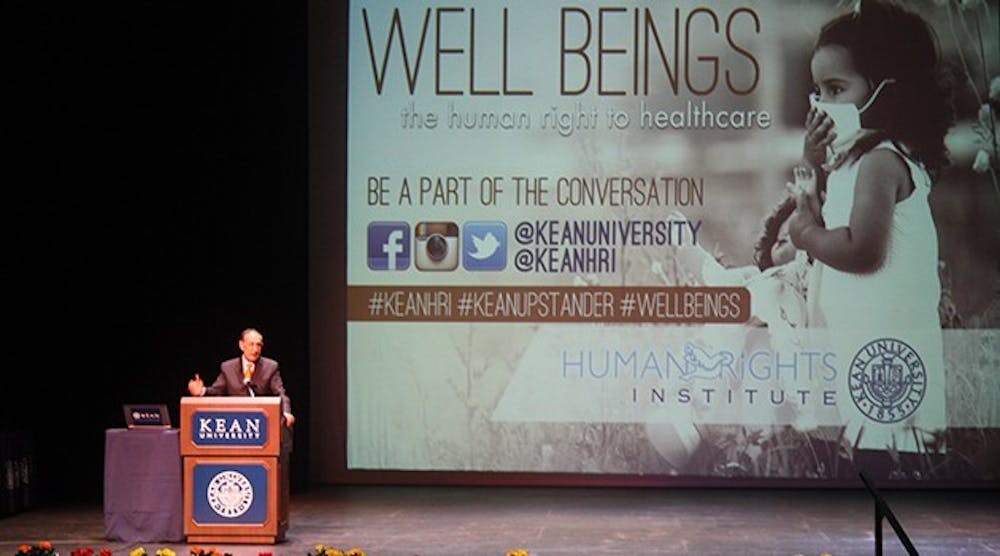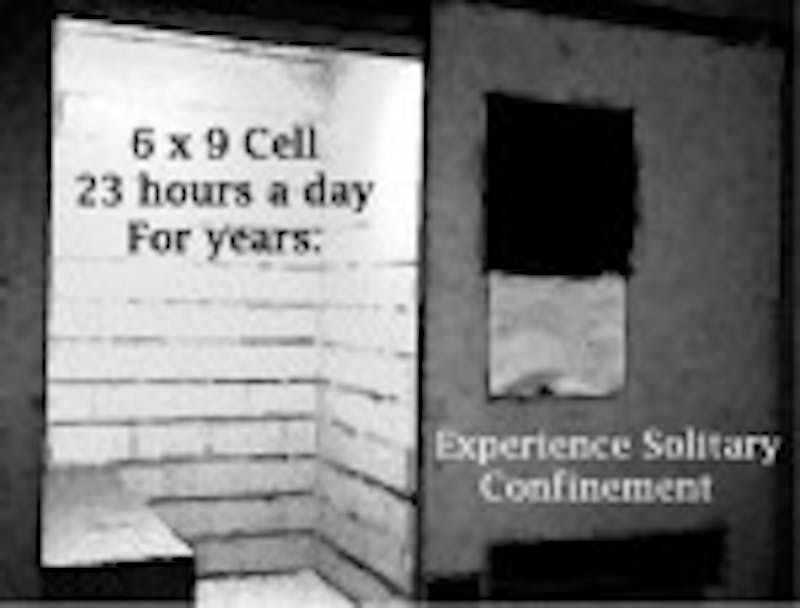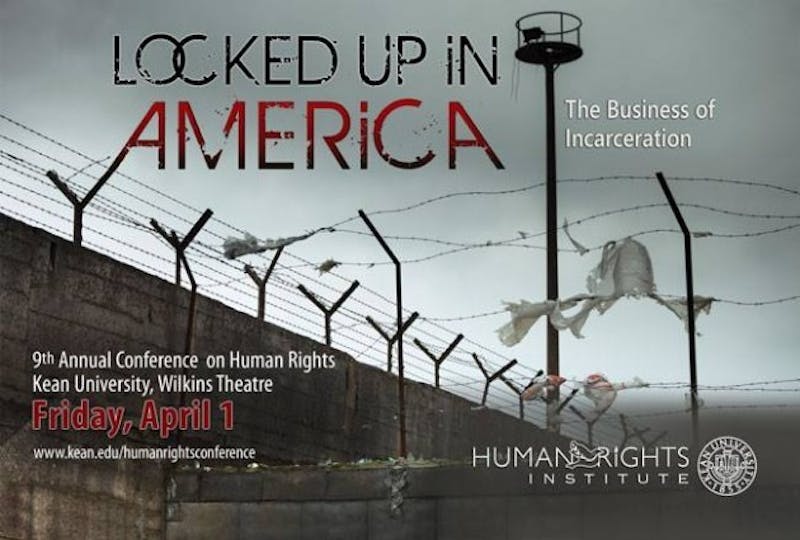President Dawood Farahi giving his speech at the eighth annual human rights conference
Photo Credits: Michael Dumaine l The Cougar's Byte
Kean University hosted the eighth Annual International Conference on Human Rights on Friday, March 13, 2015. The showcase was sponsored by the Human Rights Institute at Kean University and held in Wilkins theatre where the campus community and general public were invited to take part of.
The world is complex and plagued with hideous forms of bigotry, hatred, genocide and oppression. Sadly, these atrocities reach all corners of the globe in a way which requires constant attention. The Human Rights Institute is one resource for students to get involved in their community to help make a difference.
The Human Rights Institute dedicates their time to a number of causes, each deserving of its recognition. One way they tackle human rights issues is by promoting awareness. The overarching goal with these words of avocation is to inspire action to challenge these various injustices. They recognize that in order for action, people must come together. In an effort to create cohesion, they promote understanding across ethnic, racial, religious and other barriers that keep people divided. Similarly, as being a part of a long term solution, the institute develops initiatives designed to combat these issues at their roots. In countless ways, they are socially engaged in their surrounding world and encourage others to be as well.
The event opened with a speech from the President of Kean University, Dr. Dawood Farahi. He spoke of the importance of the conference, as well as introduced the first speaker, Dr. Norma Boe, who is also a professor here at Kean University.
Boe spoke about her mission to clean up local high crime areas, as well as her goal to make her organization “Be the Change” global. She spoke about her influence in Newark, New Jersey, and how she started implementing an invention called Pilot Gardens. Pilot Gardens are lifeless lots within Newark that are covered in garbage. Within one day her and her team constructs beautiful spherical gardens full of flowers and vegetables. These Pilot Gardens have helped immensely to lower crime statistics, as well as promote unity within the community. Boe stated, “Newark’s crime rate is five times the national average, and we are taking it back one garden at a time.” Aside from her gardens, Boe travels to foreign countries to help aid in hunger and poverty the best she can. She stated “I ventured into a city in India were they were so poor, the ratio of people to a toilet was 116 to 1.”
Following Dr. Boe was critically acclaimed writer, Ms. Laurie Garrett. Garret is the first author to ever win all three of the highest accolades given to an author; the Peabody, Polk, and the Pulitzer awards. Throughout her presentation she spoke of her travels to foreign cities that experienced debauching academics of diseases and plague. Her speech was truly motivating and inspirational, as well as proving of the fact that one person can indeed make a difference.
The third speaker was Catherine Albisa. Albisa is co-founder and executive director of the National Economic and Social Rights Initiative. She is also a human rights lawyer and commissioner for New York’s commission on human rights. Albisa spoke upon the current healthcare epidemic, and how the United States [US] is number 37 in terms of best healthcare. She touched upon the unruly medical bills people are faced with, and how it manages to ruin people’s lives. Albisa spoke of a man she knew whom was diagnosed with cancer. He stated, “If I get medical treatment, I bankrupt my family, and if I don’t, I leave them without a father and husband.”
The human Rights Conferences have been a notable part of Kean University’s history. For close to 10 years, Kean University has made it not only a tradition but an annual commitment to go above and beyond for the good of humanity. Every year, they concentrate their efforts or attention on some of the most pervasive problems in the world. The conferences have previously focused on the following:
- 2008: Darfur as the First Genocide of the 21 Century.
- 2009: Bangladesh 1971: Addressing claims of War crimes, Genocide and Crimes against Humanity
- 2010: Combating Hatred.
- 2011: Immigration: a melting pot no more?
- 2012: Creating Opportunity through Education as a way of Empowering Women in the Developing World
- 2013: #ENOUGH! - Affecting Change from the Frontlines to Your Newsfeed.
- 2014: Out of the Ashes: Rebuilding Lives and Communities Postwar.
- 2015: WELL BEINGS: The Human Right to Healthcare.
From advocating for women in refugee camps in Darfur and the Congo, to sponsoring events to raise awareness of child slavery and human trafficking, the human rights institute exemplifies what it means to be empathetic. They understand the imperativeness of compassionate. The simple fact is, our humanity is our great likeness, as well as our only asset. Despite distance and differences, we have a moral obligation to one another to care for one another.






